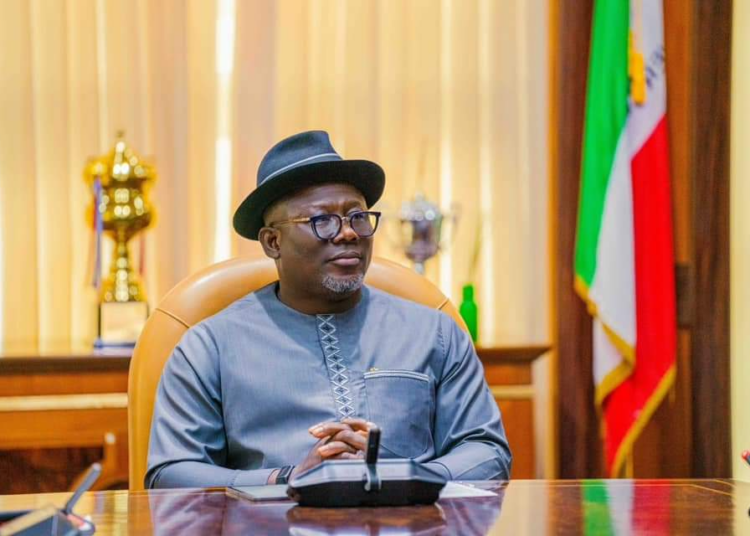The Delta State Government has announced an ambitious infrastructure expansion plan totaling over N230 billion, covering multiple sectors and senatorial districts in the state. The new development package includes major projects in roads, health, education, flood control, and energy, as the state intensifies efforts to enhance connectivity, economic activity, and social services across Delta North, Central, and South.
Speaking at a press briefing in Asaba following the State Executive Council meeting, the Commissioner for Works (Rural and Riverine Roads), Charles Aniagwu, revealed that the council, under the leadership of Governor Sheriff Oborevwori, had approved the construction of two landmark flyovers and a dual carriageway, among other major works.
One of the flagship projects is the proposed flyover at Uromi Junction in Agbor, Ika North East Local Government Area, which will be constructed by Julius Berger Nigeria Plc at a cost of N59 billion. Aniagwu described the structure as a “game-changer” that will feature two roundabouts and advanced 30-meter beams to ensure durability and improved traffic safety. “This is not just a flyover; it is an investment in regional mobility, safety, and commerce,” he said.
In addition to the Agbor project, the council approved a second flyover along the Asaba–Ughelli Road at Otouwodo, with a contract sum of N39.3 billion. The third major road intervention is the construction of a dual carriageway along Sapele Road in Effurun, pegged at N35 billion. These three projects alone make up over half of the total amount approved and are expected to significantly enhance intra-state movement and reduce traffic congestion in key economic corridors.
Beyond the flagship projects, the government has earmarked funds for several other strategic road constructions and rehabilitations. Among them are the Koloko–Tissu Road in Warri North, which will cost N5 billion, and the Bomadi–Gbarigolor Road project at N4.4 billion. The Bulu–Angiama Road off the Patani Expressway has been allocated N5.1 billion, while the Ituru Road in the Elumeh area of Okpe–Sapele will receive N5 billion for reconstruction.

Other approved road works include the Akujeba–Merije Road at N4.4 billion, the Onovou Community Road off the Benin Expressway at N2.1 billion, and the Olikiliki Layout Road in Asaba, which will cost N1.4 billion. Internal road networks within institutions and communities are also being prioritized, including those in the College of Education, Mosogar (N1.6 billion), and Esuala and Emu–Obodeti areas (N2.6 billion). The Camp Two internal roads in Warri South have been pegged at N1.05 billion, while the access road to the Model Technical College in Obiaruku, Nkwuani Local Government Area, will take N1 billion. Additional works were approved in the Oko communities—Amakom, Obiakpom, and Anala—with a combined cost of N1.6 billion. The Okwa Crescent project was allocated N318 million.
Recognizing the perennial challenge of flooding in urban centres, the council also approved N15.3 billion for flood control efforts in Agbor and N5.6 billion for similar works in the Summit area of Asaba. Both areas have experienced frequent and destructive seasonal flooding, raising public concern in recent years.
In a move to support the Federal Government’s development drive, particularly around the Second Niger Bridge corridor, the Delta State Government has set aside N10 billion in compensation for property and landowners whose holdings lie along the 17.5-kilometre stretch that connects Asaba to the Onitsha–Benin Expressway. This is intended to fast-track access and eliminate litigation-related bottlenecks.
The health sector is also receiving a boost under the new approvals. The council authorized the release of N7.1 billion for the acquisition of modern medical equipment to be installed in selected General Hospitals across the state in collaboration with the Federal Government. This intervention aims to upgrade primary and secondary healthcare delivery and reduce referrals to tertiary centres for basic treatments.
In a show of commitment to staff welfare, the state government has approved N1.2 billion for the payment of retirement benefits to 132 former staff members of Delta State University. Aniagwu emphasized that this decision reflects the administration’s intention to uphold social justice and ensure retired workers are not neglected.
The commissioner also disclosed that the state government has revoked a number of dormant or non-performing contracts, some dating back to 2013. According to him, the termination of these contracts is part of a broader effort to redirect state resources toward projects that deliver measurable impact within realistic timeframes.
Governor Oborevwori’s administration, through these expansive approvals, signals a renewed focus on equitable infrastructure distribution, economic revitalization, and social service enhancement. With contractors expected to mobilize in the coming weeks, the government says it will closely monitor implementation timelines and quality assurance protocols to ensure value for money and accelerated delivery.



